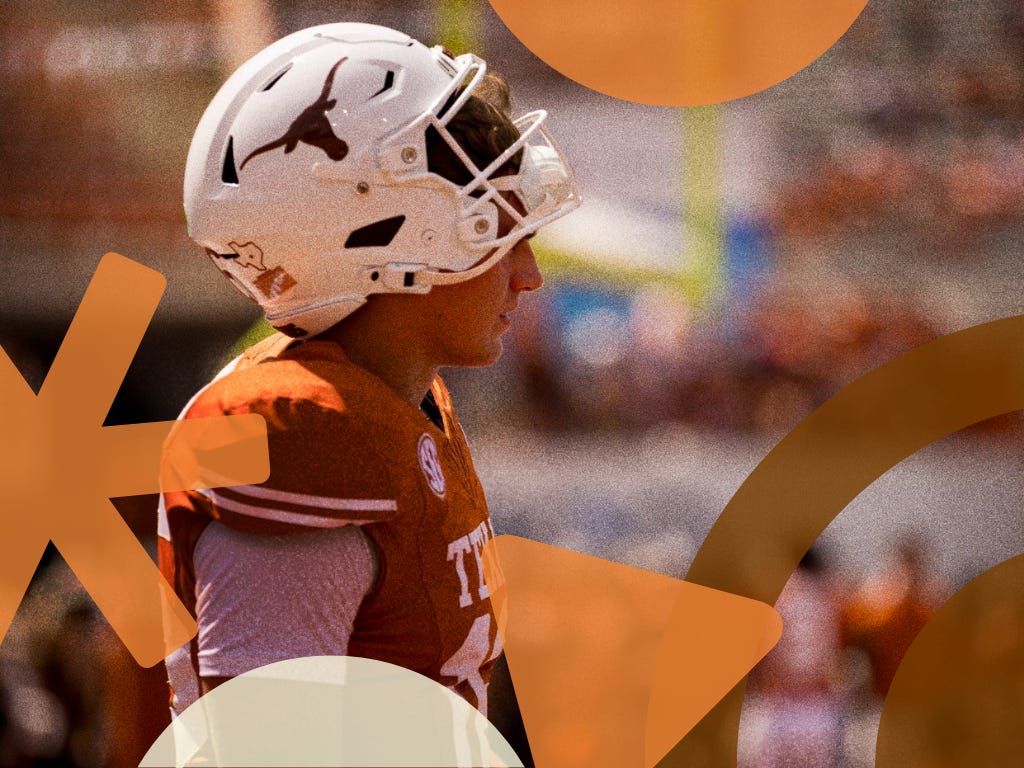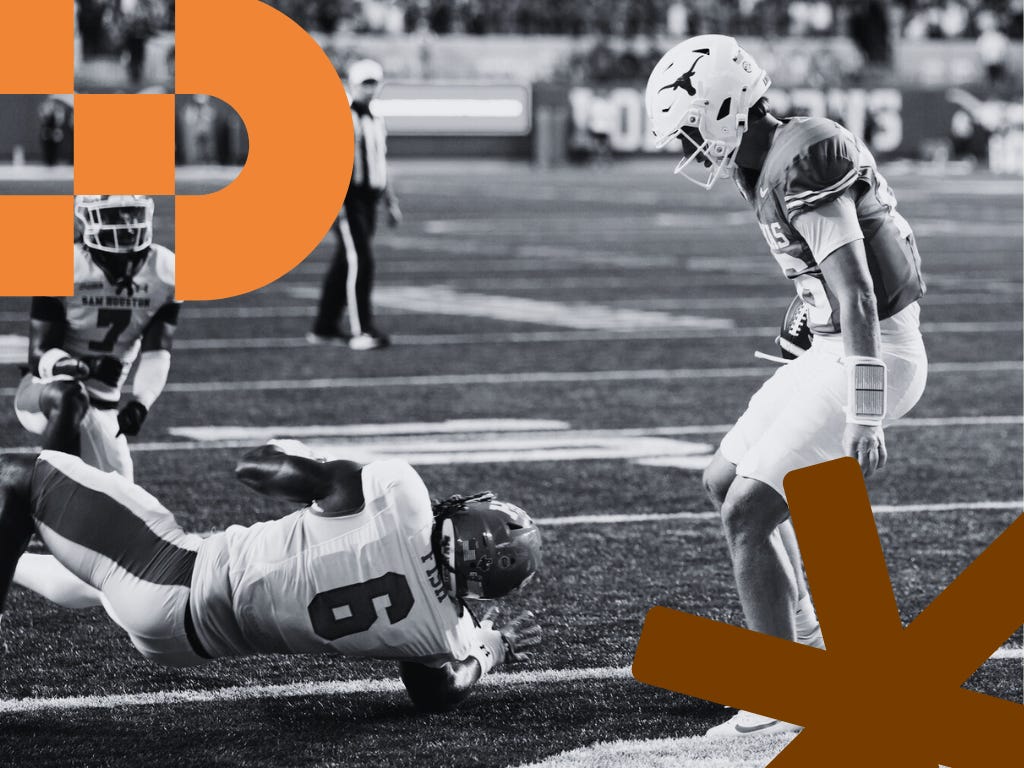Arch Manning & Unwinnable Expectations
Early struggles, immense pressure, and the cost of a last name
In “The Last Dance”, there is a scene that shows Michael Jordan, at the peak of his athletic fame, maneuvering around reporters and fans to find a quiet moment. He was the face of the league with countless obligations as a pitchman. The scene concludes with the person being interviewed suggesting that “being like Mike” was a burden that no one should want.
That moment gave us a glimpse of the cost of fame that some athletes pay. A life where you are always on display, where every move is overanalyzed. I was reminded of this dynamic when thinking about the first month of Arch Manning’s season. Manning was supposed to be next can’t-miss quarterback prospect, a player who carries the lineage of his grandfather, Archie, and his uncles, Peyton and Eli. Instead, he has looked pedestrian, a reminder that we’re far too quick to anoint players before they are ready.
The Weight of the Manning Name
In 2023, Arch Manning was the number one recruit in a class that included other players like Caleb Downs, Dante Moore, and Kadyn Proctor. He committed to Texas, where he played behind Quinn Ewers for two years. Excitement built around Arch’s athleticism and arm talent, especially paired with the weapons in Austin. The preseason hype grew so strong that many suggested that he was the number one prospect for next year’s Draft and a Heisman front-runner.
A mere four games into the season, his name doesn’t even appear on mock drafts. Many talent evaluators, including Todd McShay, suggest that he’ll play another year of college because his game simply isn’t yet NFL-ready. His accuracy has been erratic, and he has struggled reading defenses at times—even against subpar competition. He has shown poor mechanics, pressed on many throws, and displayed a general lack of confidence in his process.
It wasn’t supposed to be like this. Arch was supposed to be a blend of the athleticism of Archie and the throwing ability of Peyton and Eli. The real issue is that his name is football royalty. If he were named Arch Wilson, no one would care—he would just be another five-star recruit that is learning the nuances of the game. But because Peyton and Eli are all over ESPN, doing commercials, and recognizable by virtually all football fans, he is expected to live up to the impossible standard of three Pro Bowl NFL quarterbacks.
On top of that, he chose to play at Texas—a program chasing a return to the heights it had during the Vince Young and Colt McCoy eras. It’s a program that is often considered a “sleeping giant” in the college football landscape and one that should be in the mix for national titles. Landing a recruit like Manning was supposed to put them over the top. And when he sat behind Ewers for two seasons, that hunger only intensified—ratcheting up the pressure on Manning to perform.
Manning, it would seem, is in a predicament where he can’t truly win. When the baseline expectation was set at being a Hall-of-Fame-level quarterback, disappointment is almost inevitable. He could develop into a fine college quarterback, and it will mean little to many who expected him to be a savior. It’s a reminder of the dangers of hyperbole and outlandish expectations for young prospects that often burns them out before they can truly become the fullest version of themselves.
The Danger of Expectations
College football history is filled with highly touted high school quarterbacks that succumbed to the pressure of expectations, players who were supposed to be saviors but crumbled under the weight expectations. Rhett Bomar, Ryan Perriloux, Tate Martell, and JT Daniels are just a few examples of this reality.
The bust rate is especially pronounced at the quarterback position, the position that carries the most weight and receives the most acclaim. It is also uniquely isolating, with success or failure tied to one player. If Georgia or Clemson recruit a five-star defensive lineman and he doesn’t pan out, they likely have a couple of other players behind him that can fill in without as much drop-off. But quarterbacks are expected to meaningfully alter the fate of a program and a coach. We’ve seen it with DJ Lagway at Florida—a highly touted prospect who has yet to deliver and may end up costing Billy Napier his job.
Turning around teams and leading them to championship contention is the baseline for big-time college football quarterbacks. Those expectations and that pressure are magnified by Arch Manning’s visibility. Before he took a snap behind Quinn Ewers he was supposed to be a legend. He opened this season in a far‑from‑perfect situation: his first start as the full‑time starter, on the road in Columbus against Ohio State. He understandably looked rattled and uncomposed.
Since then, he has slipped off the national radar and even struggled at times against UTEP. Even when he has played well, he has been criticized. In a 55-0 win over Sam Houston State (SHSU), Manning went 18-for-21 for 309 yards and five total touchdowns (three passing, two rushing). The moment most discussed, though, was his flex after he spun away from a SHSU defender on a rushing score.
The critique was that Manning is supposed to dominate a team like SHSU, that flexing on an inferior opponent should be beneath him. In reality, the moment was likely one of relief after he has been under the microscope to start this season. But because he is excepted to be what we made him out to be, he was roundly criticized by many analysts.
Sometimes we forget we’re talking about players in their early twenties. They’re still learning their craft and how to be adults. We think that they should know better, when they need to make their mistakes and learn from them. The difference is that every move is analyzed, overanalyzed, and analyzed again for good measure. I don’t envy the weight of being Arch Manning. He needs more time. The question is whether we will give it to him.



